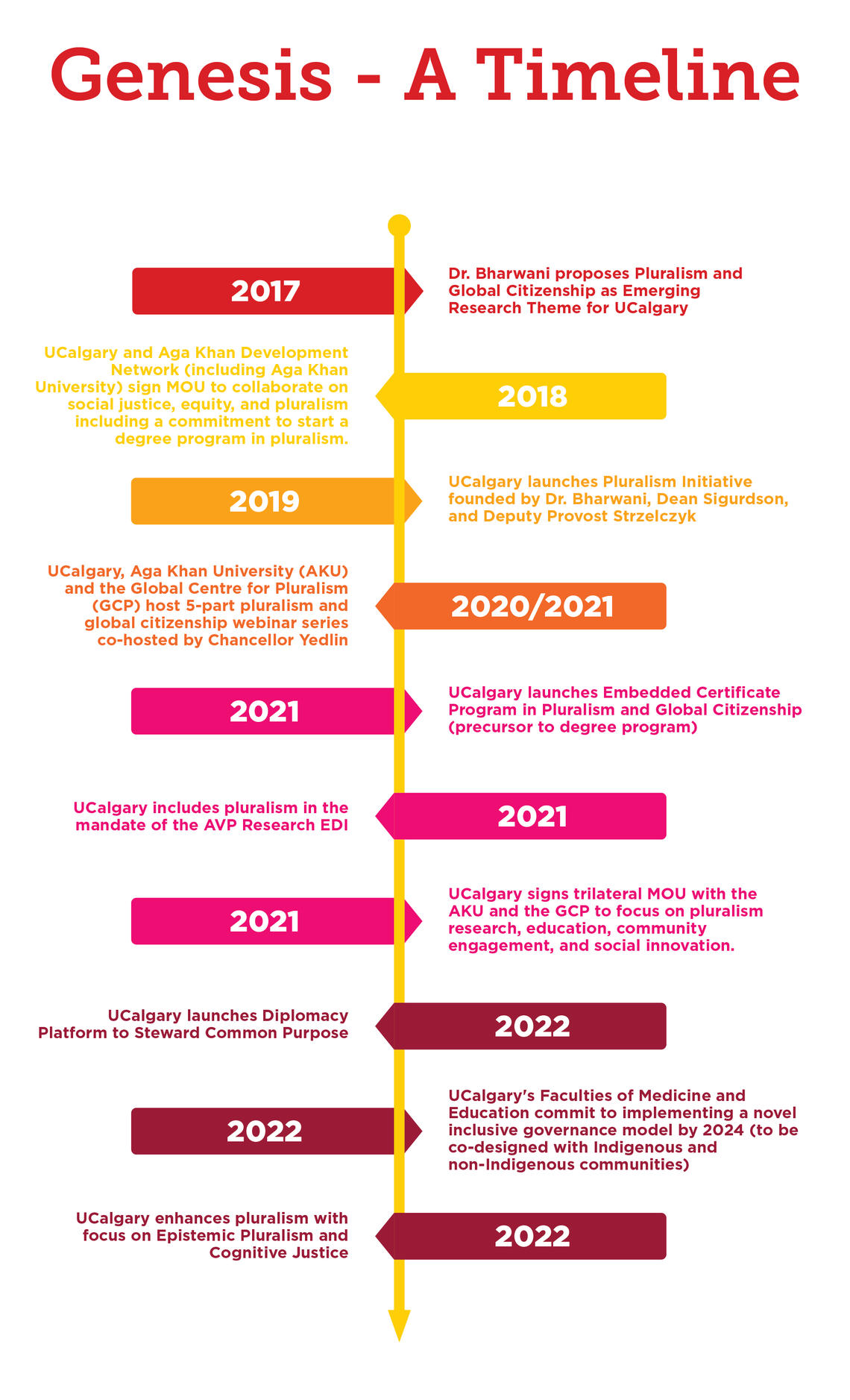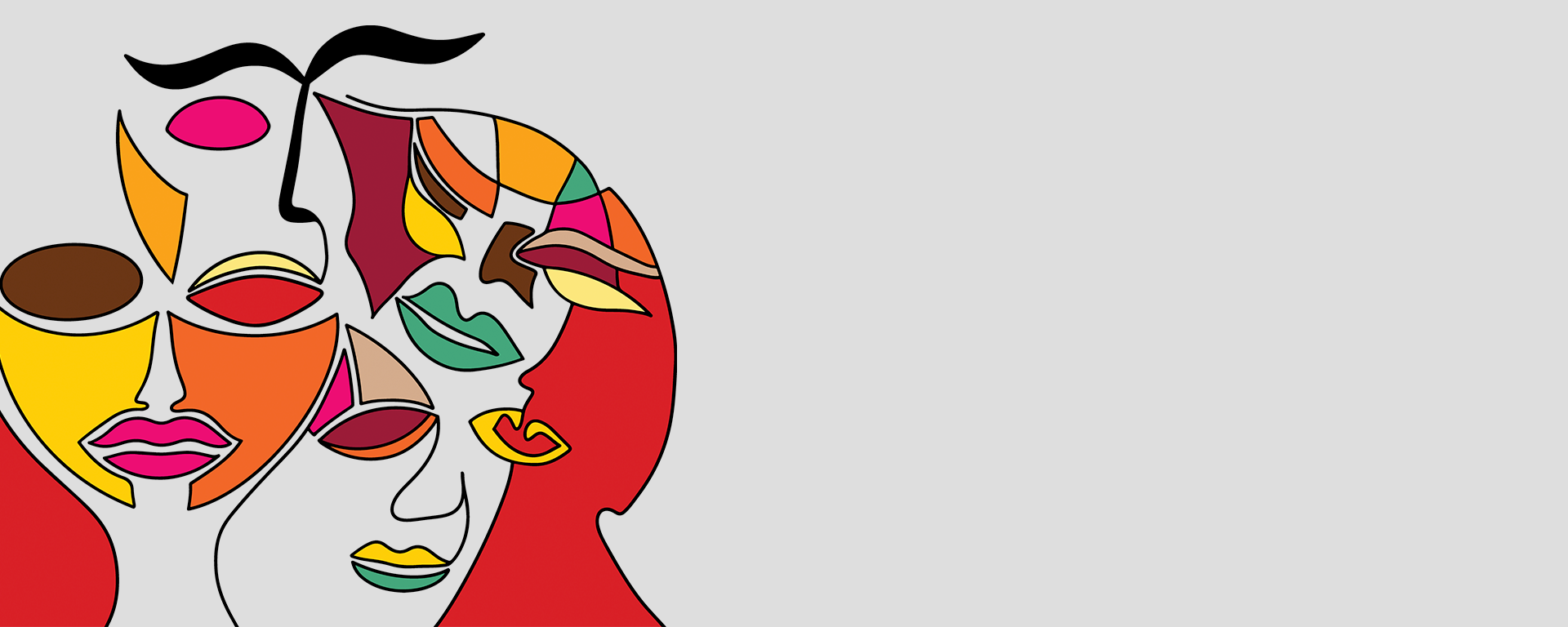Diversity in Research, Policy, Impact and Innovation
The University of Calgary is committed to establishing pluralism through a series of initiatives, programs and policies across campus.
The Civil Society Forum
In 2018 UCalgary invited 50 policy-makers, academics, and members of Indigenous civil society that serve Indigenous individuals for a one-day conference. The event aimed to call on civil society partners to identify options to prevent and mitigate toxic stress impacting Indigenous youth and communities.
Inclusive Faculty Governance in the Faculties of Medicine and Education
In response to an explicit call to address systemic barriers for Indigenous and non-Indigenous communities in universities, we have Tri-Agency funding to co-design, implement, and evaluate a novel inclusive governance model for the Faculties of Education and Medicine. This project has the explicit support of Dean Dr. Todd Anderson (Medicine) and Dean Dr. Dianne Gereluk (Education), as well as that of the Vice-Provost (Indigenous Engagement), Dr. Michael Hart and the Vice-Provost (Equity, Diversity, and Inclusion) Dr. Malinda Smith.
Diplomacy Platform + City partnership
The University of Calgary is an honest broker to facilitate conversations between stakeholders, policymakers and community members. The university participates in an impartial capacity without any agenda and engages all members to reach thoughtful and practical solutions.
SSHRC-funded co-design: Participants told us that complex (wicked) societal problems are challenging because stakeholders are disconnected, don’t trust each other, and often have misaligned incentives to achieve a common purpose on complex and nuanced issues that are not easy to understand, and all compounded because we lack a forum to convene these differences to understand better and solve problems that interact across systems, orders of government, and sectors. Participants told us that to solve complex (wicked) societal problems; a University-based entity could act as an honest broker to increase intergroup contact, foster inclusive understanding, and focus on long-term issues through a diplomacy platform that facilitates discourse across sectors and identities.
City-funded project: The City has retained us to conduct dialogues in the Greater Forest Lawn area (East Calgary) to better understand their needs and aspirations. The benefit of using a diplomacy platform is that our engagement doesn’t come with an agenda; without whiteboards, fancy decks, or headset microphones, we focus on neighbours sharing stories about their dreams and challenges. We sit in a circle and facilitate conversation (curated by identity, sector, discipline, and geography) to help neighbours know each other and understand their similarities and differences. Over a series of dialogues, participants reach a consensus on priorities. We then curate new groups that each focus on a single identified priority area and invite civil society representatives and policymakers with expertise or capacity to effect change in that area. We use a Problem-Solving Workshop approach to move from problem identification to solution generation; the solutions generated are more durable because the community has identified the issue by consensus (and feels heard) and the problems are jointly assessed and solved – closing the gap between user and policymaker. The platform stewards a common purpose by facilitating dialogue across different sectors, identities, and geographies by drawing on the University’s network and credibility to broker trust.
Indigenous Mural
After months of collaboration with Indigenous Elders and community members, UCalgary unveiled a new mural honouring Indigenous stories, knowledge and traditions. The nearly 15-meter medicine wheel mural can be seen at UCalgary’s Foothills campus.
Pluralism Social Innovation Award for Medical Students
Innovate Calgary, the Cumming School Indigenous, Local, and Global Office, and UCalgary’s Pluralism Initiative have partnered up to provide two grants of $2,500 to medical students with new ideas for social innovation.
Alberta Foundation for the Arts Pluralism Award partnership
UCalgary partnered with the Alberta Foundation of the Arts (AFA) to award five Art or Art History students with $1,000 each for their original artwork. The artworks were then gifted to each of the AFA 2021-2022 Pluralism Awards winners.
For more information on how UCalgary encourages pluralism and generates new opportunities for diverse communities, visit Models of Community Engagement.


